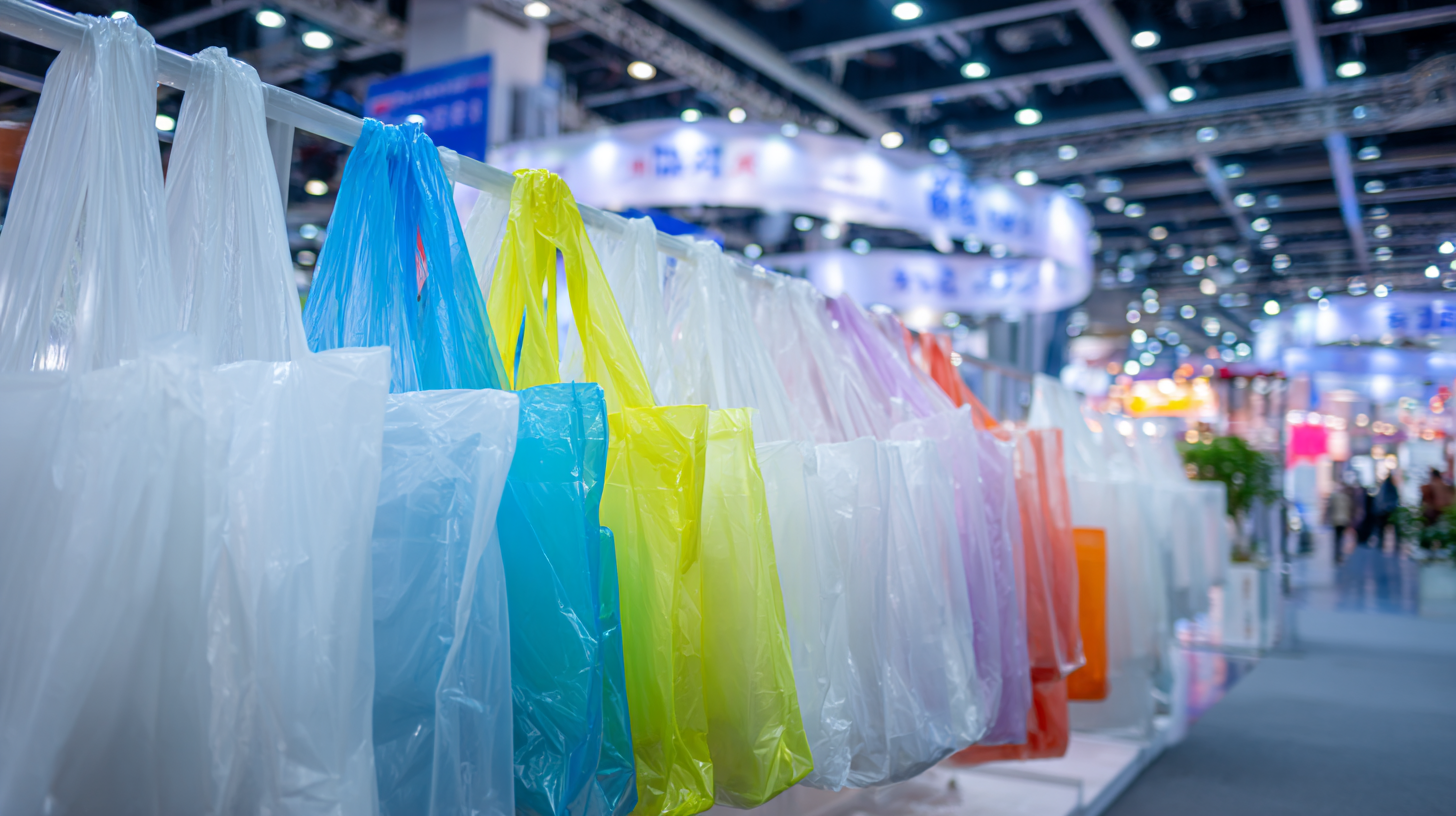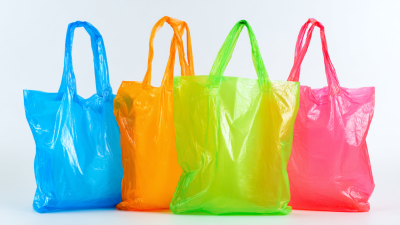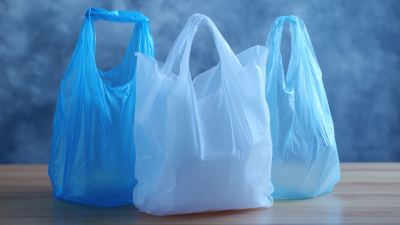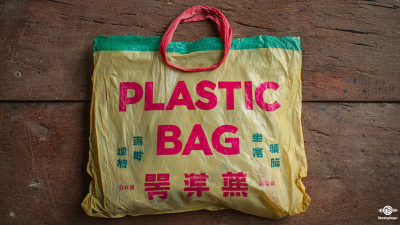- Phone:+86 15218629499
- Phone: +86 15766990063
- E-mail: Yzprinting01@163.com
As the global plastic bag industry faces increasing scrutiny over environmental impacts, the 138th Canton Fair in China in 2025 emerges as a pivotal platform for innovation and collaboration in this sector. According to a recent report by the Plastics Industry Association, the global plastic bags market is projected to reach USD 7.17 billion by 2027, growing at a CAGR of 4.5%. This growth trajectory highlights the importance of sustainable practices, as regulatory pressures mandate the reduction of single-use plastics in many regions. At the fair, stakeholders will explore cutting-edge technologies and eco-friendly alternatives that promise to reshape the future of the plastic bag industry.
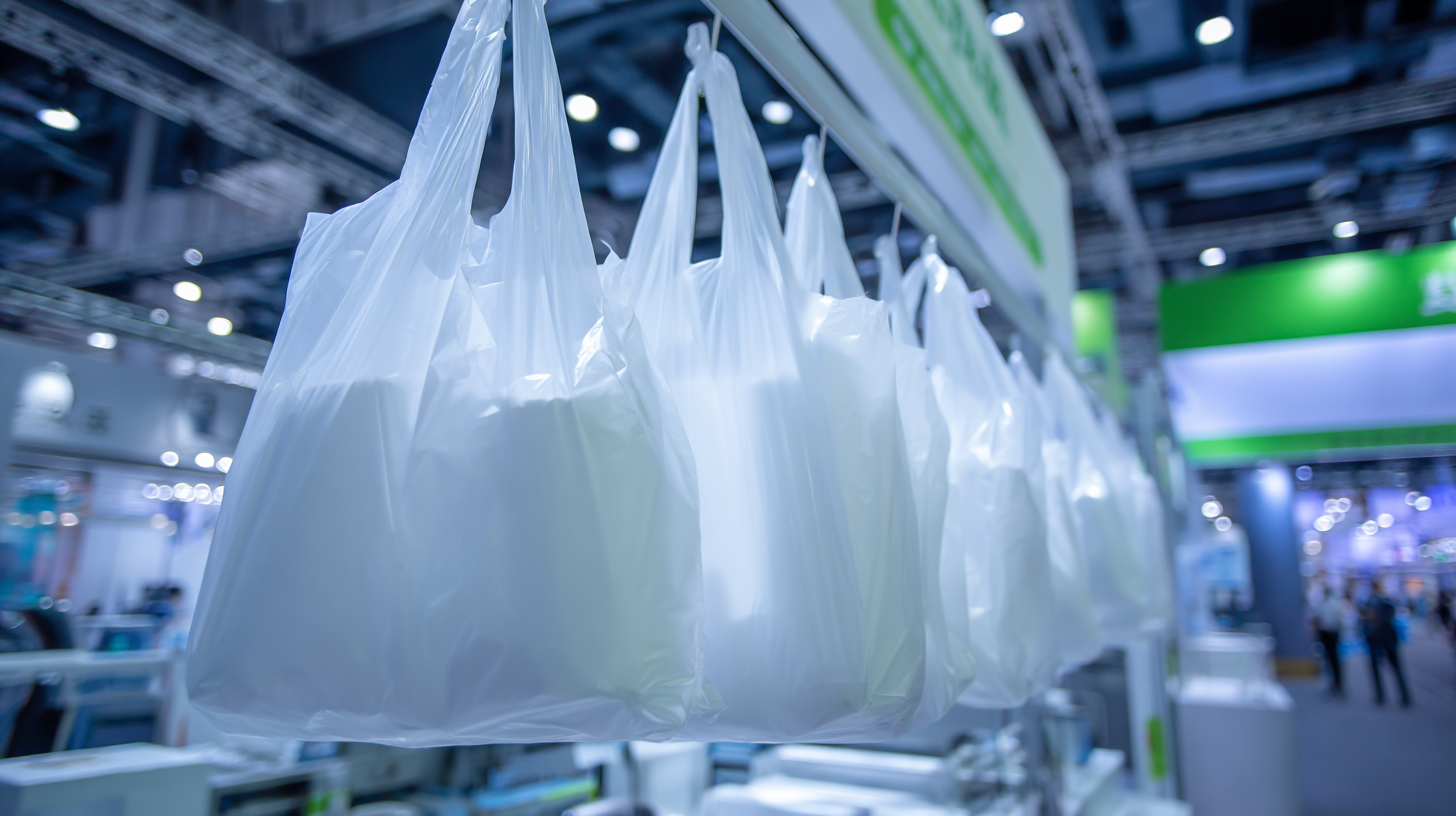
Exhibitors and attendees alike will be keen to discuss new materials, recycling solutions, and consumer trends that reflect an evolving landscape toward sustainability, ensuring that the industry adapts to both market demands and environmental responsibilities.
At the 138th Canton Fair in 2025, the plastic bags industry will face significant challenges and opportunities as environmental regulations continue to shape production practices. With an increasing emphasis on sustainability, manufacturers will need to adapt to new laws aimed at reducing plastic waste and promoting biodegradable alternatives. These regulations not only aim to curb environmental damage but also reflect a growing consumer demand for eco-friendly products. As exhibitors gather at the fair, the spotlight will be on innovations that align with these stringent requirements.
In response to these changes, companies are likely to showcase advanced materials and technologies designed to minimize the ecological footprint of plastic bags. This may include innovations in compostable films and recycling processes that enhance the lifecycle of plastic products. The Canton Fair serves as an ideal platform for industry players to network and explore potential collaborations, emphasizing the need for compliance with environmental standards while remaining competitive in a rapidly evolving market. As the industry navigates this new landscape, the interplay between regulatory pressure and product innovation will be crucial in shaping the future of the plastic bags sector.
This bar chart illustrates the decline in plastic bag production over the years leading up to the 138th Canton Fair in 2025, reflecting the impact of increasing environmental regulations.
The 138th Canton Fair in 2025 is poised to be a significant event for the plastic bags industry, highlighting a crucial shift towards sustainability. Innovations in biodegradable plastic bags will take center stage, reflecting the growing consumer demand for environmentally friendly alternatives. According to a recent industry report by Smithers Pira, the global biodegradable plastic market is expected to reach $6.6 billion by 2024, driven by legislative pressures and increasing awareness of plastic pollution. This shift in market dynamics encourages manufacturers to explore novel materials and technologies to produce biodegradable bags that can decompose more efficiently than traditional plastic.
At the fair, various companies are expected to showcase groundbreaking solutions, including plant-based bio-polymers and enhanced compostability features. For instance, companies like BASF and NatureWorks have reported significant advancements in their bio-based plastic offerings, which not only match the performance of conventional plastic but also provide a reduced environmental footprint. As the industry moves towards implementing circular economy principles, the innovations presented at the Canton Fair may play a crucial role in influencing future packaging trends globally, aligning with environmental goals and consumer preferences alike. Actualization of these innovations can significantly reshape the industry's landscape, making it an exciting time for manufacturers and consumers.
| Category | Innovation Type | Material Used | Environmental Impact | Market Demand (Projected) |
|---|---|---|---|---|
| Grocery Bags | Compostable | PLA (Polylactic Acid) | Reduces landfill waste by 30% | High |
| Retail Bags | Recyclable | RPET (Recycled Polyethylene Terephthalate) | Uses 80% less energy to produce | Moderate |
| Food Packaging | Biodegradable | Starch-based Polymers | Breaks down in 90 days | High |
| Retail Checkout Bags | Oxodegradable | Polyethylene with additives | Degrades in 12-24 months | Increasing |
At the 138th Canton Fair in 2025, the plastic bags industry is poised for dynamic changes, reflecting evolving market trends and consumer preferences. With a burgeoning focus on sustainable and biodegradable products, the global market for biodegradable plastic bags and sacks is projected to grow from $10.47 million in 2025 to $17.47 million by 2033, showcasing a compound annual growth rate of 7.17%. This trend indicates a shift in consumer behavior as they increasingly prioritize eco-friendly options.
Moreover, the overall packaging landscape is transforming, driven by rising demand for convenient and portable packaging solutions. The global plastic packaging market is expected to expand significantly, enhancing its role in meeting modern consumer lifestyles that emphasize ease and mobility. As sustainability becomes a central theme, the market for soluble packaging is predicted to increase, underlining a growing awareness of environmental impacts among consumers. This reflective change in consumer preferences is set to shape strategies within the plastic bags sector, making adaptability crucial for industry stakeholders.
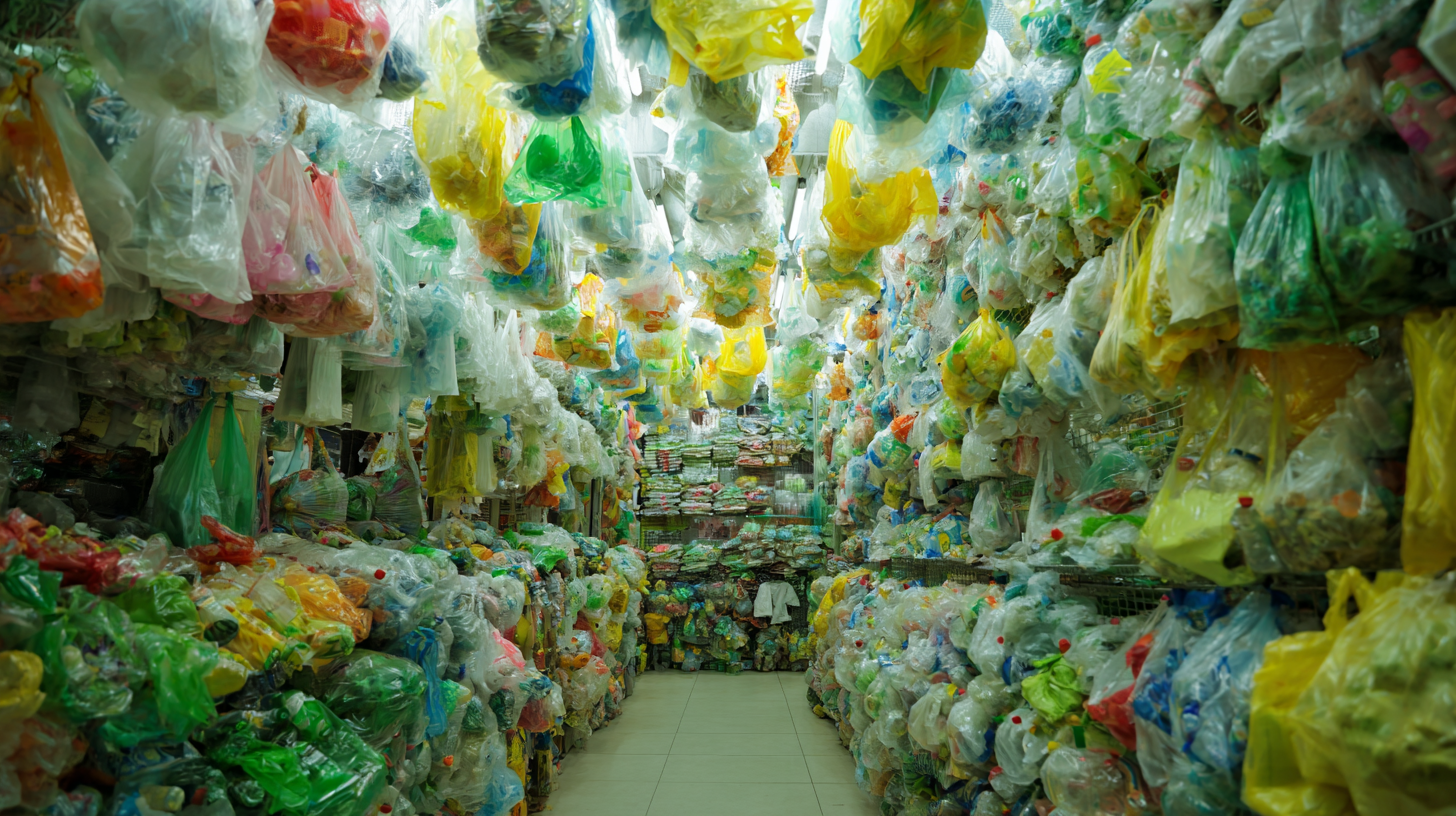 At the 138th Canton Fair in 2025, manufacturers of plastic bags in China face a landscape filled with both opportunities and challenges. As global awareness of environmental issues grows, the demand for eco-friendly packaging solutions is on the rise. This shift presents manufacturers with a significant opportunity to innovate and diversify their product lines, incorporating biodegradable and recyclable materials. By aligning with sustainable practices, businesses can meet consumer expectations and contribute to environmental conservation, thus improving their market position.
At the 138th Canton Fair in 2025, manufacturers of plastic bags in China face a landscape filled with both opportunities and challenges. As global awareness of environmental issues grows, the demand for eco-friendly packaging solutions is on the rise. This shift presents manufacturers with a significant opportunity to innovate and diversify their product lines, incorporating biodegradable and recyclable materials. By aligning with sustainable practices, businesses can meet consumer expectations and contribute to environmental conservation, thus improving their market position.
However, along with these opportunities come formidable challenges. Stricter regulations and government policies aimed at reducing plastic waste may require manufacturers to adapt rapidly. This could involve investing in new technologies and processes, which may be financially demanding for smaller companies. Additionally, competition from international players who may operate under different regulatory conditions can put pressure on local manufacturers. To thrive in this evolving market, companies must navigate these challenges carefully while embracing sustainable practices and innovations.
The 138th Canton Fair in 2025 promises to be a pivotal event for the plastic bags industry, focusing on innovative networking and collaborative strategies that prioritize sustainability. Industry leaders and experts will gather to share insights on the environmental impacts of plastic bags and explore alternatives that could reshape the market. With regulations tightening globally, the fair will serve as a hub for stakeholders to discuss challenges and strategies in adapting to the evolving landscape.
Collaboration will be a key theme, as manufacturers, policymakers, and environmental organizations come together to forge partnerships that emphasize sustainable practices. Workshops and panel discussions will facilitate knowledge sharing on materials that reduce environmental footprint, recycling processes, and the adoption of biodegradable options. By fostering a dialogue among diverse participants, the Canton Fair aims to inspire collective action toward a more sustainable future for the plastic bags industry, ensuring that all stakeholders can benefit from greener innovations while meeting the demands of consumers.
